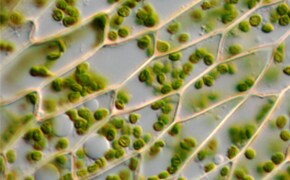Zell- & Entwicklungsbiologieforschung

Die Zell- und Entwicklungsbiologie hat ihren Ursprung in der Physiologie und Biochemie und verfolgt einen interdisziplinären Ansatz zum Verständnis der intra- und extrazellulären Dynamik. Je nach Schwerpunkt umfasst die Forschung die Bereiche zelluläre Signaltransduktion, Zelladhäsion und -migration, Zelltod und Überleben von Zellen, epigenetische Regulation, Zellwachstum und -teilung sowie Membranverkehr.
Verwandte Artikel
- Improper solubilization can potentially result in loss of the peptide/protein and result in failure of the experiment.
- To prevent or minimize peptide degradation we recommend storing the peptide in lyophilized form at –20 °C or –80 °C. Once in solution, the peptide/protein should be stored frozen in individual aliquots to avoid freeze-thaw cycles. Also, prolonged exposure to pH>8 should be avoided, and solutions should be chilled. Finally, prolonged exposure of lyophilized peptides and solutions (especially at high pH) to atmospheric oxygen should be minimized.
- Handling and Storage Guidelines for Peptides and Proteins
- n proliferating cells, the cell cycle consists of four phases. Gap 1 (G1) is the interval between mitosis and DNA replication that is characterized by cell growth. Replication of DNA occurs during the synthesis (S) phase, which is followed by a second gap phase (G2) during which growth and preparation for cell division occurs. Together, these three stages comprise the interphase phase of the cell cycle. Interphase is followed by the mitotic (M) phase.
- We deliver the broadest selection available of carcinogenic and chemopreventive biochemicals, as well as research reagents and kits for apoptosis, angiogenesis, biomarker identification, metabolomics, and functional genomics.
- Alle anzeigen (23)
Melden Sie sich an, um fortzufahren.
Um weiterzulesen, melden Sie sich bitte an oder erstellen ein Konto.
Sie haben kein Konto?